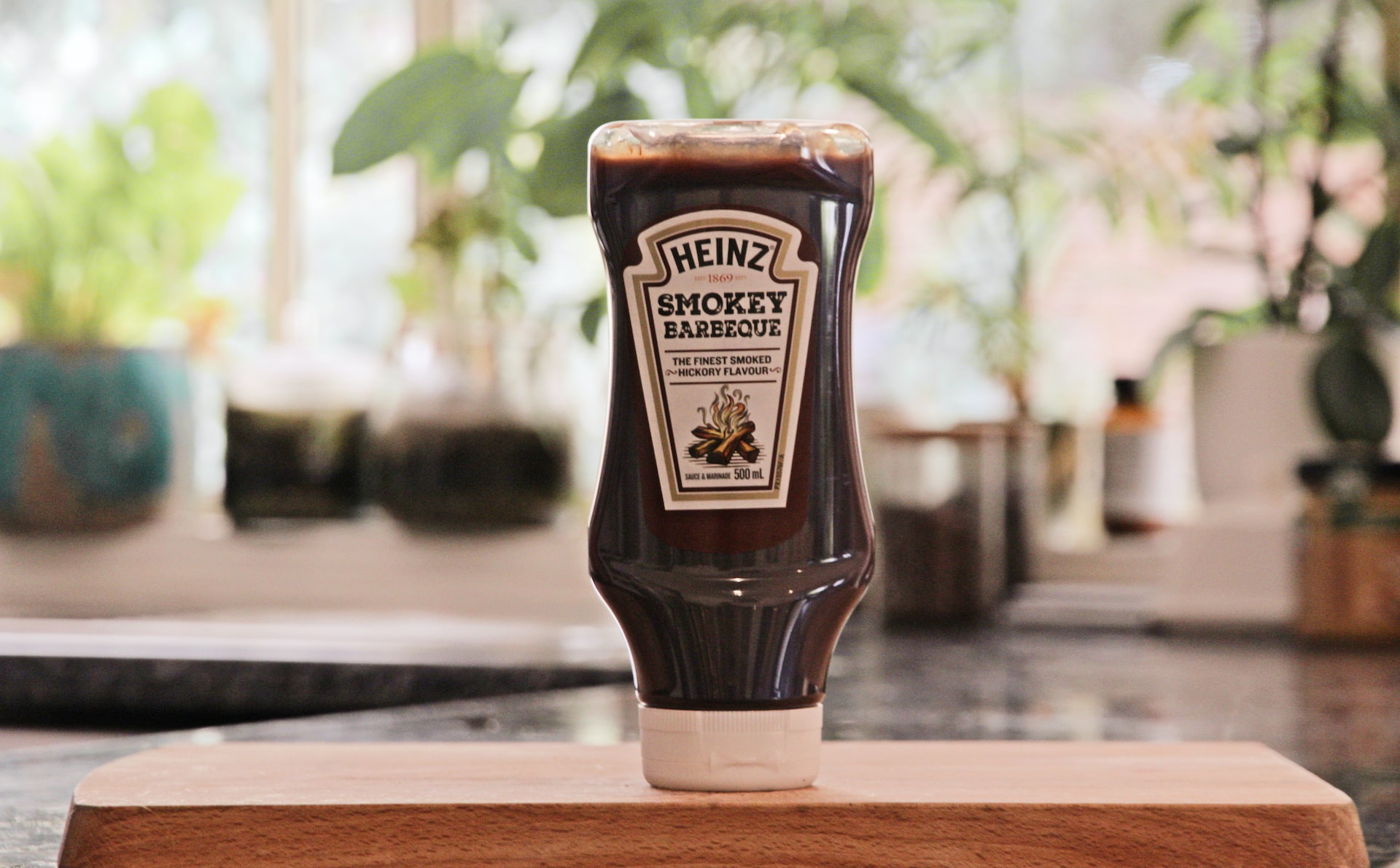Barbecue sauce does not need to be refrigerated but it is possible to extend the shelf-life by refrigerating opened bottles of bbq sauce. It is important to keep barbecue sauce from becoming contaminated with bacteria that can cause it to go bad prematurely.
BBQ sauce is a delicious topping that you can use on just about anything—pork, chicken, burgers, or even as a salad dressing – and it adds a rich and smoky flavor to your food.
You can store unopened barbecue sauce at room temperature in the pantry, cupboard, or refrigerator. While some people may keep their sauce in the fridge, it doesn’t mean it’s necessary to do so. Always check the label to know the best way to store your BBQ sauce, which can vary by brand.
Does Barbecue Sauce Need to Be Refrigerated After Opening?
Yes, it’s recommended that you refrigerate your barbecue sauce after you’ve opened it. The good news is that an opened bottle can last for many months in the fridge. The time and shelf-life can depend on the brand, so always check what the label says.
In the case of unopened barbecue sauce, most brands state they don’t need refrigeration. For unopened bottles of bbq sauce, you can store them in a cool, dry place.
According to this food safety government app, you can keep an unopened bottle of barbecue sauce for up to 1 year in your pantry. You can also store shelf-stable commercial barbecue sauce at room temperature without affecting its safety.
After opening the barbecue sauce, you can refrigerate your barbecue sauce for up to 4 months. Refrigeration can prolong the life of your sauce – and this goes for most pantry items like hot sauces, peanut butter, ketchup, soy sauce, jams, mayo, mustard, Worcestershire sauce, and salsa.
How Long Can BBQ Sauce Stay Out of the Refrigerator?
So how long does BBQ sauce last in a pantry? It’s always best to read the label, as this can vary by brand.
Do You Have to Refrigerate Homemade BBQ Sauce?
Barbecue sauce from the grocery store may have preservatives like vinegar, lemon juice, and sugar that ensure they stay fresh for extended periods. Lemon juice or vinegar increases the acidity of the sauce and helps prevent mold, but there’s always the fact that these ingredients are pasteurized, which also ensures a longer shelf life. The sugar, molasses, and salt often found in barbecue sauce stop microbial growth by decreasing water content.
It’s different from homemade BBQ sauce which doesn’t have the advantage of preservatives (unless you add them). Most homemade BBQ sauces can last up to two weeks in the fridge. This also depends on the ingredients and the combination of ingredients used – some spoil more quickly than others. Always check the recipe for this information if you don’t plan to use all of the sauce.
How Can You Tell if BBQ Sauce Has Gone Bad?
When you’re looking to use your BBQ sauce, it’s essential to check for signs of spoilage. Here are some things to look out for:
Weird Smell or Taste
If there’s an off-putting odor coming from the bottle or it tastes sour or bitter, throw it out!
Bacterial Growth
If there are little white spots in your sauce that look like mold or fungus growing on top of it—or if you see any other sort of slimy substance—that means bacteria are growing. Throw out any sauce that exhibits these signs.
Extended Storage
If your BBQ sauce has been kept in your cupboard too long, it could potentially cause health problems for anyone who eats it—so make sure to check expiration dates before consuming. If you are well past the expiration date, throw it out.
Change in Texture
If the texture of your BBQ sauce has thickened dramatically (not just a little) over time, then there’s a good chance that it’s spoiled and needs to be thrown out immediately.
If in doubt, throw it out! If you believe the sauce has gone bad, toss it.
Color Darkening Doesn’t Mean BBQ Sauce Has Gone Bad
One sign people believe is a sign that bbq sauce has gone bad is that it has darkened in color. Fortunately, this is not a sign it has gone bad.
Barbecue sauce will naturally darken over time (like Tabasco, Sriracha, or other hot sauces). The sauce you just recently opened won’t be the same as the sauce that sat in a fridge for a few months.
What is the Shelf Life of BBQ Sauce?
When buying a bottle of BBQ sauce, you can read the expiration date on the label (labeled as best-by-date). However, the shelf life may extend beyond that because the expiration date usually represents the time the sauce will maintain its best quality. After the expiration date, it will likely become less appealing and tasty. It’s always best to use your BBQ sauce before it has expired.
An unopened BBQ sauce bottle can last 1 to 2 years in the fridge.
Can you Freeze BBQ Sauce?
Yes, you can. Frozen homemade bbq sauce lasts 3 to 4 months. There are many ways to freeze BBQ sauce, but here are some recommendations:
- Put sauce in a vacuum-sealed air-tight container.
- Place sauce in an ice cube tray and allow to freeze solid. Then place frozen sauce cubes in a ziplock bag.
- Disinfect a mason jar in the oven and place the sauce in it afterward.
How to Store BBQ Sauce
You should be aware of some things when storing your BBQ sauce so it doesn’t go bad before you use it.
Seal the bottle tightly after use.
This will keep out any moisture that might cause mold and mildew to grow in your bottle.
Place it away from direct sunlight.
The sun’s ultraviolet rays alter your BBQ sauce’s chemical composition, which can lead to spoilage. Instead, look for a dark place for your bottle.
Clean the top of the bottle opening whenever necessary.
This will help prevent mold from forming on any leftover sauce stuck to it!
Store your bottle upside down.
This slows oxidation and helps keep your sauce fresh longer.
Never transfer leftover sauce that had been sitting out back into the original bottle.
This can cause bacteria growth! Instead, throw it out or use it right away.
Don’t dip food into the BBQ sauce bottle.
Dipping straight from the bottle can introduce bacteria into your food. This happens because of cross-contamination.

